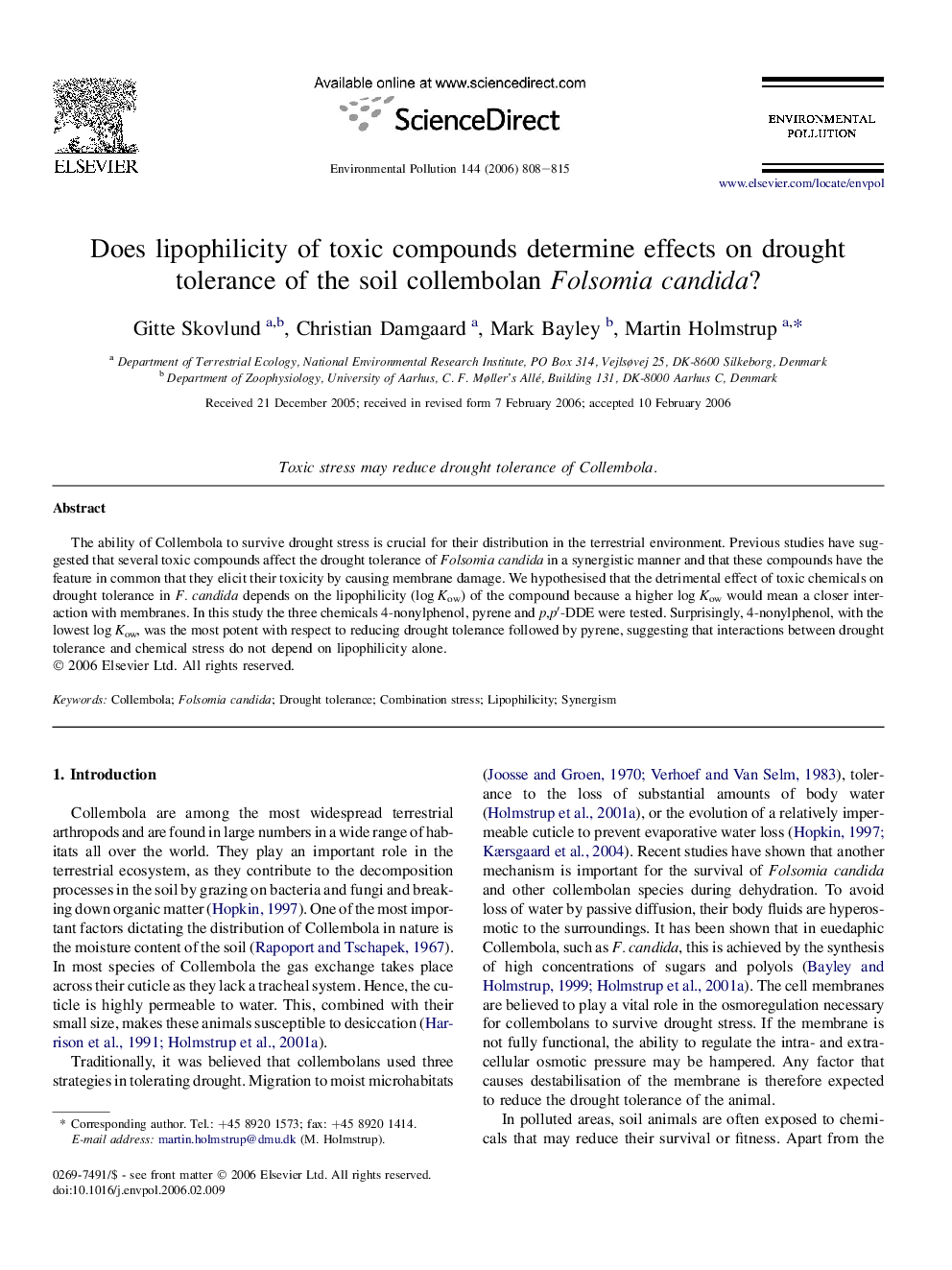| Article ID | Journal | Published Year | Pages | File Type |
|---|---|---|---|---|
| 4427316 | Environmental Pollution | 2006 | 8 Pages |
The ability of Collembola to survive drought stress is crucial for their distribution in the terrestrial environment. Previous studies have suggested that several toxic compounds affect the drought tolerance of Folsomia candida in a synergistic manner and that these compounds have the feature in common that they elicit their toxicity by causing membrane damage. We hypothesised that the detrimental effect of toxic chemicals on drought tolerance in F. candida depends on the lipophilicity (log Kow) of the compound because a higher log Kow would mean a closer interaction with membranes. In this study the three chemicals 4-nonylphenol, pyrene and p,p′-DDE were tested. Surprisingly, 4-nonylphenol, with the lowest log Kow, was the most potent with respect to reducing drought tolerance followed by pyrene, suggesting that interactions between drought tolerance and chemical stress do not depend on lipophilicity alone.
